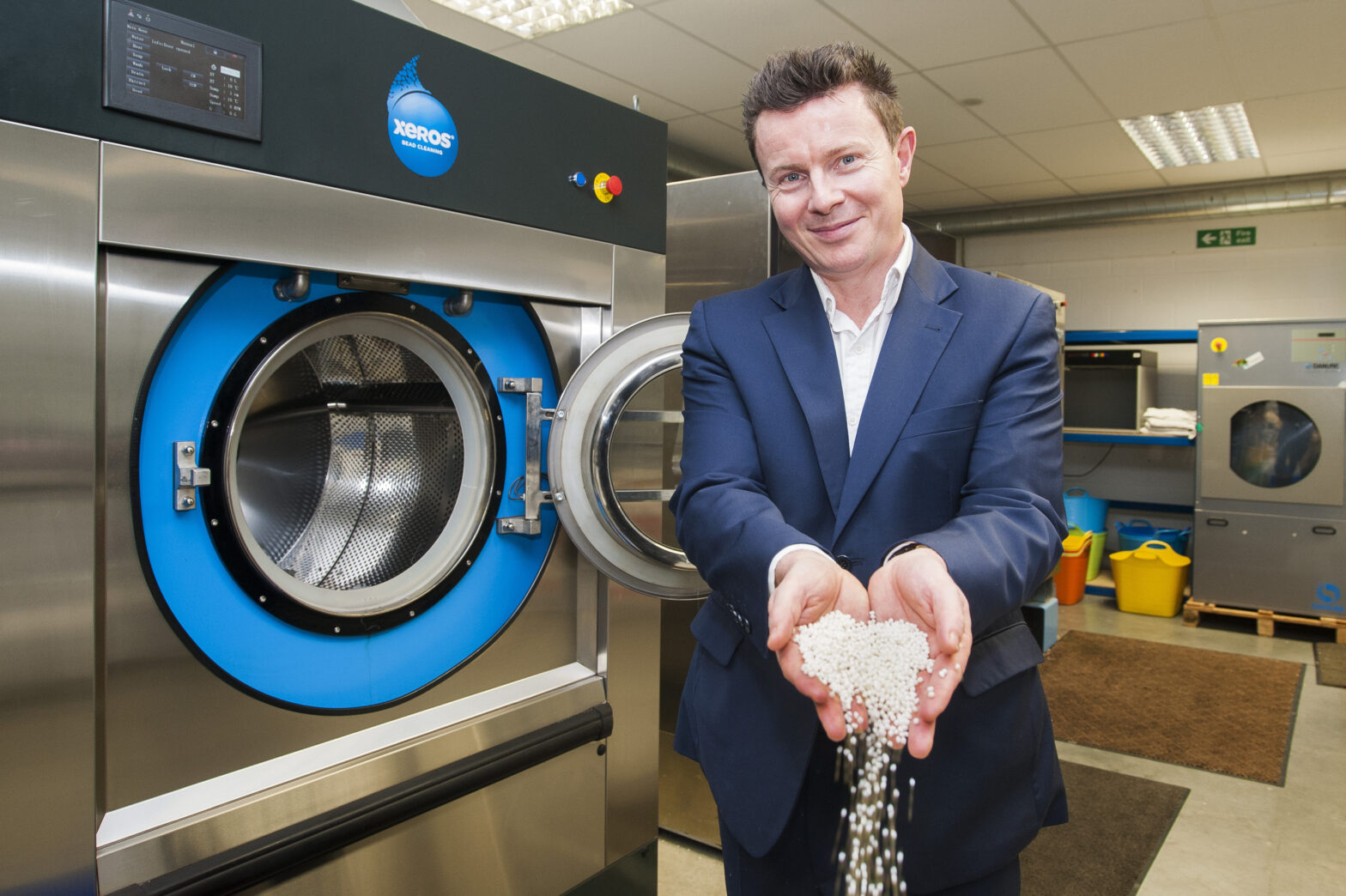The product of innovation developed at the University of Leeds, Xeros is now carving out a market for its cleaning product which reduces the amount of water and energy needed to complete a wash cycle.
Headed up by CEO Bill Westwater, a year in which the company launched its first product, built out its client base and became a public company was enough to be awarded University Spin-out of the Year at the seventh annual New Energy & Cleantech Awards hosted by GrowthBusiness.
More on the New Energy & Cleantech Awards
- Mark Robinson’s journey from early data to cleantech trailblazer
- ETF’s quest to find returns from resource efficiency
- Investors, entrepreneurs and businesses unite at awards
Asked when the business started to really achieve some traction, Westwater takes us back to March 2013 when it raised a £10 million pre-IPO round. Back then the business could largely be considered a research and development (R&D) concern – but the money it garnered back then gave it the ammunition it needed to launch a maiden product.
With market validation coming in the form of renowned fund manager Neil Woodford through his previous role as head of equities at Invesco Perpetual, who led the transaction, Xeros launched its commercial laundry product in June 2013.
The company’s system cleans clothes without the need for much water by using polymer beads. Beads are released into the drum for cleaning, and are then removed from the clothes once the process is complete. Xeros claims that the technology uses 80 per cent less water, 50 per cent less energy and 50 per cent less detergent.
Not happy with just being a commercial application, Westwater is driving forward with plans to take the technology into other applicable areas.
‘Above and beyond the product launch, 2013 was about accelerating the visibility and possibility of a domestic laundry product,’ he explains
‘Our engineers have developed a late stage prototype, and we now want to go about demonstrating that we can have all the functionality of a large washing machine.’
Westwater says that unlike its commercial operations where it is producing the machines, growth on the domestic front will be driven by securing licensing agreements with original equipment manufacturers (OEMs).
Scope of operations
The best way to understand the scope of the business, Westwater urges, is to not think of it as just a laundry company but rather a bead cleaning platform. With this in mind, the Xeros CEO believes that laundry is just the first of many products and that beads can replace the majority of water in chemistry and other applications.
Already in the pipeline is a way to replace water and chemicals in leather applications, with a University of Northampton tie-in spearheading this. Another example is the garment finishing industry where textiles need to have lubricants washed off before stitching can occur.
To fund all of this R&D Xeros raised just shy of £30 million on admission to London’s Alternative Investment Market (AIM). Having been a public company for six weeks, Westwater says it is challenging having a share price to protect, something which his equally difficult to not spend every day looking at.
But a feature of the new investors who came in, he says, are that they are backing long-term prospects.
‘They realise we are almost pre-revenue, and are not the kind to get jumpy on a daily basis.
‘Another feature of the money we raised was that it came from current larger institutional investors, which know the company, management and business plan.’
Westwater stresses that another key feature of Xeros as a public company is that it has a dual approach. ‘There are some which float on the market that are 100 per cent R&D and gain investment on that premise, but then don’t hear out them for a few years.
‘At our heart we are an R&D company looking to innovate but we do have a revenue-generating arm of the business which I think makes us a bit more of an interesting proposition.’
Xeros markets
With most of its initial commercial customers located in the US, this is where activities for Xeros will be focused in the next year. It is the extreme cost of water there, especially in some states, which provides the market opportunity, he says.
While he freely admits that on a typically rainy spring day it is pretty hard to talk about water scarcity in the UK, it is a present and urgent issue which is not going to go away.
‘Anyone based in this game will have healthy prospects. When I first came into this business the language was all about carbon footprint savings, but water is becoming more and more of a currency.’
Xeros is part of a trend that is seeing a move away from an industry dominated by alternative energy innovation and towards driving efficiency of what we already have.






